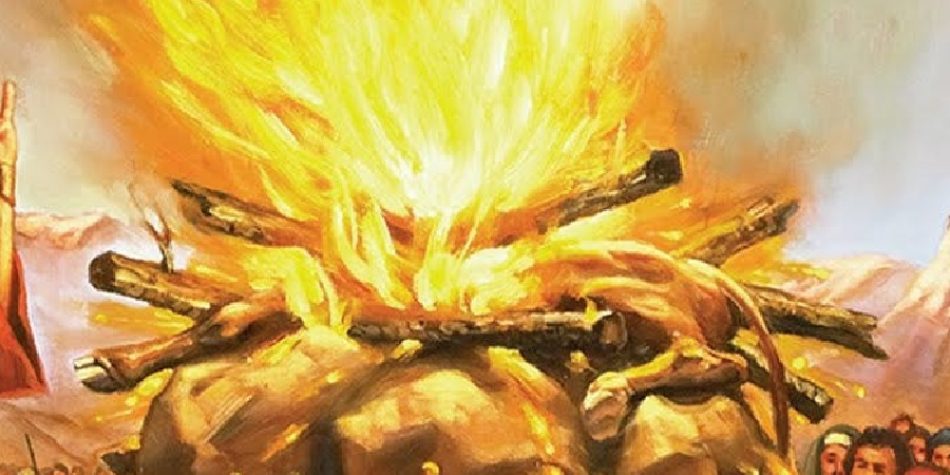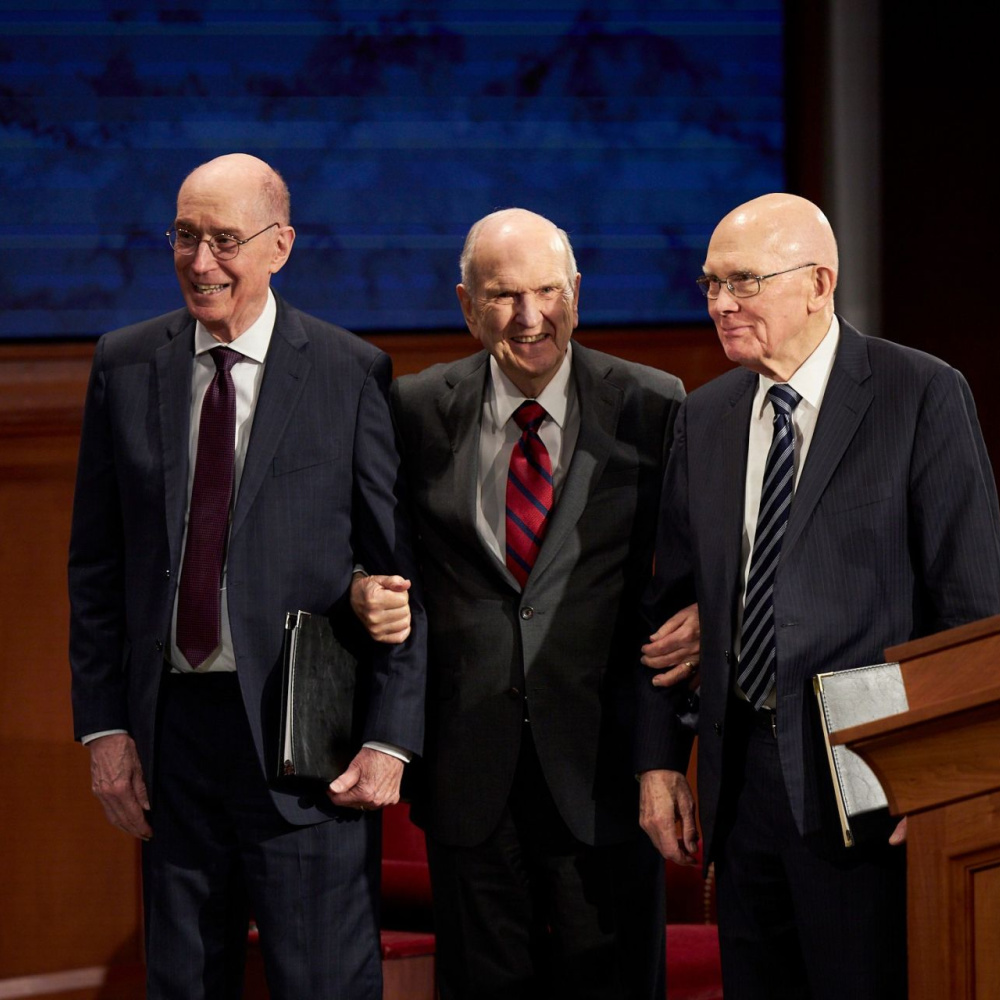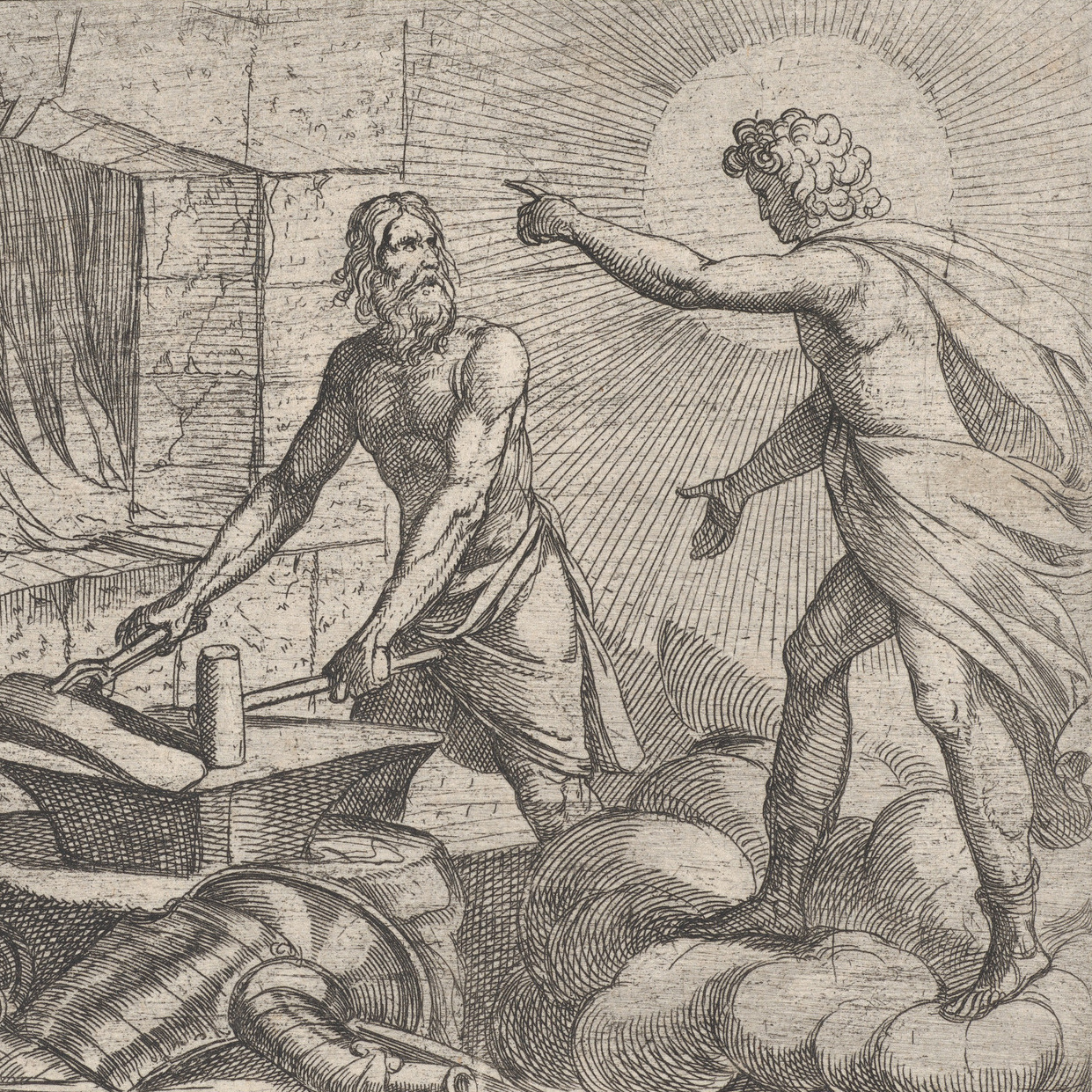“To what purpose is the multitude of your sacrifices unto me? Saith the LORD.” This question, posed in the opening chapter of the book of Isaiah, put Israel in an uncomfortable position.
That specific sacrifices, rituals, feasts, and other religious practices were central parts of its covenant with YHWH was beyond doubt. Israel’s sacred texts clearly outlined how and in what way Israel was to worship the God of the Exodus and Sinai. (See, for instance, Exodus 12:14; 13:13; 20:22-23:33; Exodus 34:11-26; Deuteronomy 12-26; Leviticus 17-26 as a start.) And, apparently, Israel was largely doing the things it had been asked to do. While it was certainly not perfect in every respect, Israel seems to have been keeping Sabbath, practicing temple rituals, including sacrifices, and holding many of the appropriate festivals.
And yet, multiple prophets challenged Israel’s adherence to the very laws and ordinances that were part of this prophetically-given covenant guide. Prophet after prophet challenged Israel even as Israel apparently kept the laws and ordinances it was given. Picking up where the question above leaves off, Isaiah continues voicing God’s view of these practices:
“I [the LORD] am full of the burnt offerings of rams, and the fat of fed beasts; and I delight not in the blood of bullocks, or of lambs, or of he goats … Bring no more vain oblations; incense is an abomination unto me; the new moons and sabbaths, the calling of assemblies, I cannot away with; it is iniquity, even the solemn meeting. Your new moons and your appointed feasts my soul hateth: they are a trouble unto me; I am weary to bear them. And when ye spread forth your hands, I will hide mine eyes from you: yea, when ye make many prayers, I will not hear: your hands are full of blood.”
To be clear, the LORD does more than just summarily dismiss Israel’s worship practice; the LORD says that these practices—the sacrifices, rituals, and feasts they are under obligation to do as part of the covenant—are “iniquity” and an “abomination, and that “my soul hateth” them. This scathing condemnation concludes with the LORD saying, “I will hide mine eyes from you … I will not hear you.”
And Isaiah was not alone in portraying God’s displeasure with Israel’s worship. We see similar language in the book of Amos. Amos frames it this way:
“I [the LORD] hate, I despise your feast days, and I will not smell in your solemn assemblies. Though ye offer me burnt offerings and your meat offerings, I will not accept them: neither will I regard the peace offerings of your fat beasts. Take thou away from me the noise of thy songs; for I will not hear the melody of thy viols.”
And Hosea says simply: “They sacrifice flesh for the sacrifices of mine offerings, and eat it; but the LORD accepteth them not.”
Like Isaiah, Amos and Hosea portray the LORD as more than just critiquing the act of worship—with the Lord very clearly despising Israel’s feasts, refusing to accept (or even regard!) its offerings and sacrifices, and calling its songs and music of praise “noise” that “I will not hear.”
The prophet Micah takes a different approach but delivers the same basic message as his prophetic contemporaries. After articulating all the things that the LORD had done for Israel from Egypt onward, Micah asks Israel a series of stinging rhetorical questions that serve to undermine Israel’s approach to worship. Says Micah:
“Wherewith shall I come before the Lord, and bow myself before the high God? … Will the Lord be pleased with thousands of rams, or with ten thousands of rivers of oil? shall I give my firstborn for my transgression, the fruit of my body for the sin of my soul?”
The clear answer to Micah’s questions about whether God is pleased by the prospect of “thousands of rams,” “ten thousands of rivers of oil,” or even “my firstborn” is no. This over-the-top zealousness is not only insufficient but is, itself, a source of God’s disapproval. Isaiah, Amos, Hosea, and Micha all make clear that, despite Israel’s apparent devotion to the sacrifices, rituals, feasts, and other religious practices which were central parts of its covenant with YHWH, God is displeased with Israel. The LORD wanted the people of Israel to show all of their neighbors the same deep fidelity and covenantal love which they had received from the LORD.
Another explanation for Isaiah, Amos, Hosea, and Micah’s critique, which does not seem to fully capture what was taking place, is the notion that Israel was knowingly “going through the motions”—they were guilty of willful hypocrisy. That is to say, that in offering sacrifices or participating in festivals, Israel was not actually worshiping God but instead simply fulfilling outward requirements without any deeper covenantal connection. Yet, in my view, this does not seem to be the primary source of the problem either.
Yes, it was certainly the case that Israel was commanded to love and worship the LORD and to keep the Sinai teaching in their respective hearts, and that did not always happen. (When the act of worship becomes more important than the purpose of worship, what I have previously called ecclesiolatry, we stray into potential idol worship, a practice many Hebrew Bible prophets condemn.) In fact, highlighting Israel’s penchant for a straying focus, a central hope in Jeremiah’s view of restoration is that Israel will be given a “new heart.” All of that is correct. However, while all of this might be true, hypocrisy does not seem to be the core problem that resulted in such strong language from Isaiah, Amos, Hosea, and Micah. Only in Amos (and only in one verse) is there any indication that Israel was not focused on worshiping God. Indeed, I think it is more likely that the people believed that they were doing things properly. The people may have felt like they were worshiping God through the required performances. That is to say: Israel understood itself as keeping the commandments. In fact, I think a key indication that Israel felt like its adherence to sacrifices, rituals, feasts, and other religious practices was in-line with its covenant requirements is the very fact that Isaiah, Amos, Hosea, and Micah had to use such dramatic language to get Israel’s attention. So, what is it that Israel needed to do differently?
Fortunately, in the same way that Isaiah, Amos, Hosea, and Micah were direct with Israel when it came to expressing the LORD’s displeasure, these four prophets were similarly direct with Israel when it came to stating what Israel needed to do differently. And what was that? Put briefly: Israel needed to exercise justice, righteousness, and mercy. Here is how each of the four prophets expresses this:
“Learn to do well; seek judgment, relieve the oppressed, judge the fatherless, plead for the widow. … Zion shall be redeemed with judgment, and her converts with righteousness” (Isa 1:17, 27).
“But let judgment run down as waters, and righteousness as a mighty stream” (Amos 5:24).
“For I desired mercy, and not sacrifice; and the knowledge of God more than burnt offerings” (Hosea 6:6).
“He hath shewed thee, O man, what is good; and what doth the Lord require of thee, but to do justly, and to love mercy, and to walk humbly with thy God?” (Micah 6:8).
My sense, especially in light of Ezekiel and Ezra’s view of the importance of Israel’s ritual practices referenced above, is that God is not rejecting Israel’s method of worship, nor is God (for the most part) impugning the motivation behind Israel keeping of the required sacrifices, rituals, feasts, and other religious practices. Rather, Isaiah, Amos, Hosea, and Micah suggest that Israel needed to do a better job practicing what Jesus would call (eight centuries later!) the “weightier matters” of the Sinaic teachings. The core problem of Israel—according to Isaiah, Amos, Hosea, and Micah—was the lack of justice, righteousness, and mercy. Given the centrality of these ideas in the Hebrew Bible, it is worth briefly exploring what these terms mean.
Mishpat, Tzedeq, Hesed
Justice: If said with just the right inflection, the word “justice” feels punitive. It’s what happens to people when they do something wrong; “justice is served” could be a superhero’s catchphrase when she nabs the bad guy. In the modern Latter-day Saint community, that notion is broadened a little, and “justice” is something closer to a synonym for “fair” or “equitable.” For example, the phrase “God is just” for many Latter-day Saint folks means something like “God gives you what you deserve (good or bad).” However, both uses are worlds away from what the 8th century BCE prophets Isaiah, Amos, Hosea, and Micah meant when they used that word.
The word we translate as “justice” (or “judgment” or “justly”) comes from the Hebrew word mishpat. Mishpat, in the Hebrew Bible—and as used by Isaiah, Amos, Hosea, and Micah in the verses above—reflects the idea of ensuring that the weakest members of society are protected from exploitation. Usually, the term is used in connection with groups like widows, orphans, resident aliens, or poor, and often in contexts where there are clear power differentials. For instance, during some sort of civil dispute, a person who exercises mishpat will take the side of widows or orphans and defend them against those who are more powerful. Or, as another example, if a member of the community had to sell their family’s land or becomes subject to debt bondage a person who exercises mishpat will redeem the property that had been sold or free Israelites from their debt bondage. In the Hebrew Bible, “justice” most often points to a social obligation to protect the weak and powerless from exploitation.
Righteousness: In modern-day usage, “righteousness” is often associated with personal piety. That is to say, righteousness is an inward characteristic. “Righteous” is sometimes synonymous with “orthodox.” In the Latter-day Saint community, righteousness may be associated with maintaining a current temple recommend and studying the scriptures, and praying regularly. Someone is “righteous” when they follow the prophet and keep the commandments; these actions indicate their inward commitment.
However, Isaiah, Amos, Hosea, and Micah were talking about something different when they used this word. In the verses above, tzedeq is the Hebrew word that is translated into the English word “righteousness” (and its derivatives). Like mishpat, tzedeq connotes a social obligation. As used by Isaiah, Amos, Hosea, and Micah, tzedeq is characterized by the idea of proactively caring for those who are disadvantaged or pursuing communal flourishing, even when it comes at the expense of self-interest. Tzedeq is often the companion virtue to mishpat. Where justice is protecting the weakest members of society from exploitation (defending them), righteousness is taking steps to help those who need it (uplifting them). In Latter-day Saint vernacular, the term that comes closest to expressing this ideal is probably charity. In the verses above, “righteousness” points to ensuring that those who are on the margins of society are given what they need to prosper and flourish.
Mercy: The word “mercy” is commonly used nowadays to capture the idea of being favored, often undeservedly so. “Mercy” is used to describe the act of helping those whose behavior might not otherwise justify such magnanimity. In this sense, the modern-day usage (perhaps especially in the Latter-day Saint community) of “mercy” is that it is the opposite of “justice.” If justice is getting what you deserve, then mercy is getting what you do not deserve. However, just like the words mishpat and tzedeq, this modern-day usage is not necessarily what Isaiah, Amos, Hosea, and Micah were expressing in the 8th Century BCE. Covenants with God are inherently covenants with each other.
Conclusion
Understanding what mishpat, tzedeq, and hesed suggest put us in a better place to understand the remarkable prophetic guidance of Isaiah, Amos, Hosea, and Micah. The problem, according to these prophets, seems to be that Israel had failed to recognize that being God’s people required more than adherence to specific sacrifices, rituals, feasts, and other religious practices. Those things were important but not sufficient in and of themselves. What the LORD desired and required of Israel—the things that the LORD also wanted Israel to do—was to protect and bless the people in their community. The LORD wanted the people of Israel to show all of their neighbors the same deep fidelity and commitment—that is to say, covenantal love—which they had received from the LORD. They were to protect and bless the rich and the poor, the bonded and the free, the Israelite and the stranger. In short, the people of Israel needed to live into the reality that acovenant with God isinherently connected to and reflected by how we treat each other.
In our modern world, this message is needed now more than ever. Though the Latter-day Saint community does a great deal to reach out and help those around us, there are always ways to improve—something encouraged by recent leaders. A deeper appreciation of scripture can help us recognize that we have room to grow. And when we fully embrace the reality that the covenants we make at baptism and in the temple cannot be kept without walking out of the baptismal font and outside of the temple and into a relationship with those who surround us in this earthly existence—that is to say when we fully embrace the recognition that covenants with God are inherently covenants with each other—we will finally be able to follow the guidance that these 8th Century BCE prophets gave to Israel anciently and which still resonate for us today. We live lives of justice, righteousness, and mercy. After all, as Jesus said:
“Thou shalt love the Lord thy God with all thy heart, and with all thy soul, and with all thy mind. This is the first and great commandment. And the second is like unto it, Thou shalt love thy neighbor as thyself.”

















